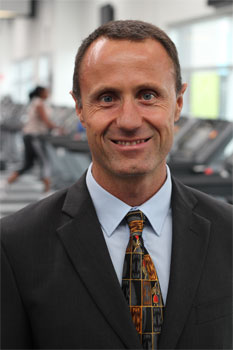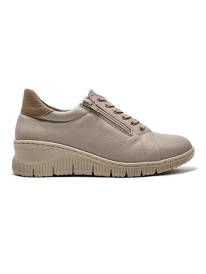Stephen Eddey The Truth About Cholesterol Interview

Stephen Eddey The Truth About Cholesterol Interview
We ask Stephen Eddey, nutritionist, naturopath and principal of Health Schools Australia, to share his advice on healthy cholesterol.
Interview with Stephen Eddey
Question: What is cholesterol?
Stephen Eddey: The word cholesterol may sound scary, but it is vital for the healthy and normal functioning of the body. Many people think that cholesterol comes from food, but the body produces it itself.
Question: Why do we need cholesterol?
Stephen Eddey: Your body produces it to build cell walls in the brain, nerves, muscles, skin, liver, intestines, and heart. Cholesterol is also used to produce hormones, and to make the bile acids that help you digest food.
Question: How does cholesterol work?
Stephen Eddey: Imagine a white, melted candle: that's what your cholesterol looks like. It moves around the body by the main carrier, low-density lipoprotein (LDL), and high-density lipoprotein (HDL). The amount of cholesterol in your blood can be determined by a blood test.
Question: What is good cholesterol?
Stephen Eddey: HDL is called the 'good' cholesterol, because it helps to protect you against heart disease by removing excess cholesterol levels out of your cells, including the arteries. It carries cholesterol back to the liver, where it's either broken down or passed out of the body as a waste product. The higher your HDL levels, the better.
Question: What is bad cholesterol?
Stephen Eddey: LDL carries cholesterol to the cells that need it. It is known as the 'bad' cholesterol because when there's too much for the cells to use, a build-up in the artery walls can occur. This build up can cause chest pain, heart disease, heart attack, stroke, and kidney and circulation problems.
Question: Which foods contain bad cholesterol?
Stephen Eddey: As you don't need to include foods with cholesterol in your diet, it's best to avoid those high in saturated fats, including:
• grain fed fatty meats
• processed meats such as salami and sausages
• chips or other snack foods
• takeaway foods, particularly deep-fried foods
• cakes, biscuits and pastries
Question: What contributes to having high cholesterol?
Stephen Eddey: Eating foods which are high in saturated and trans fats, such as grain fed fatty meats, full-cream dairy products, deep-fried take-away foods and baked products can increase your cholesterol levels. Smoking, being overweight, and lack of exercise are also unhealthy lifestyle habits. Question: What health risks are directly associated with high cholesterol?
Stephen Eddey: High cholesterol levels can cause several health issues, including heart disease, heart attack and/or stroke.
Question: What are some effective ways to help lower cholesterol?
Stephen Eddey: Changing your diet is usually the first step to lower your cholesterol. Cut down on grains, sugars and fried foods and increase your servings of fibrous fruits and vegetables. Aim to eat cold water fish two to three times a week and limit alcohol consumption.
Supplementing with Cuban Policosanol may help to improve cholesterol levels by increasing HDL (good) cholesterol and reducing LDL (bad) cholesterol within the normal cholesterol range.
To find out more about cholesterol and its management please visit www.raydel.com.au.
Dietary supplements should not replace a balanced diet. Please seek advice from your healthcare practitioner before considering the use of supplements.
Interview by Brooke Hunter
MORE
- Melanoma treatment
- Positive
- Chickenpox Vaccination
- Treatment for Advanced Liver Cancer
- Genetic link to depression in Huntington's disease
- Electronic Prescriptions
- Aussies Waking Up to Allergies
- managing type 2 diabetes
- Kidney Watch Early Detection
- Kidney Watch High Blood Pressure
- Sleep Loss and Daytime Performance



